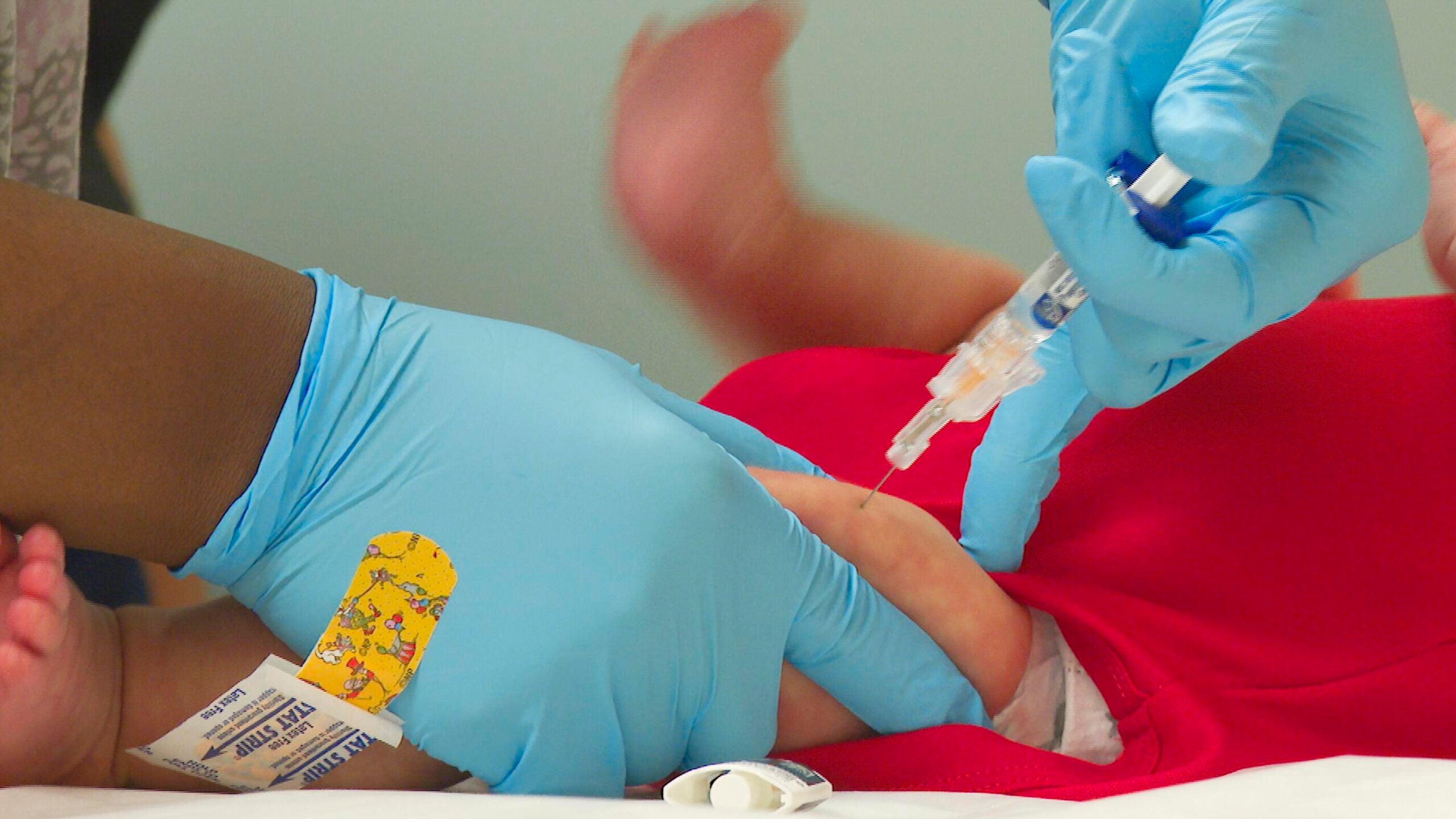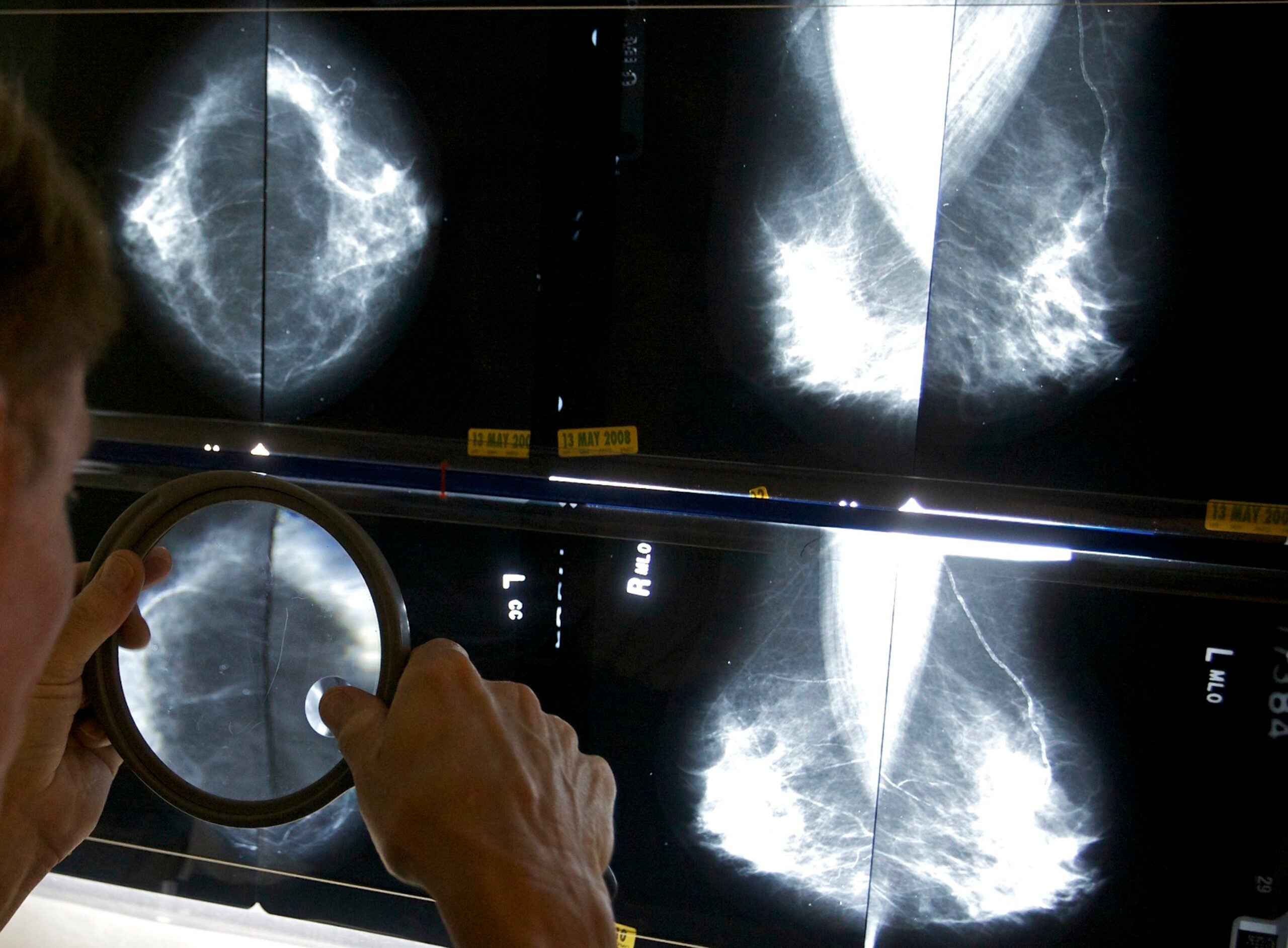Screening for head and neck cancers is fast and easy. Larry Meiller finds out why it is so important, and the link between the human pappiloma virus (HPV) and those conditions.
Featured in this Show
-
Head, Neck Cancers Are On The Rise
April is Head and Neck Cancer Awareness Month, an event with the goal of informing the public about cancers that may not be the most common, but that are nevertheless increasing in frequency.
“It’s not the most common cancer, that’s for sure, but it’s one that has a pretty dramatic impact on patients’ lives,” said Dr. Aaron Wieland, an otolaryngologist and a head and neck surgeon with the University of Wisconsin-Madison School of Medicine and Public Health.
There are several types of cancer that fit under the head and neck category. Wieland said that cancer of the tonsils and the back of the tongue have been increasing over the course of the last 10 to 15 years. Unfortunately, there is no reason to expect that trend to level off, he said.
One of the most common viruses that human beings carry is the Human Papillomavirus, or HPV. There are more than 100 strains of the virus. Many are harmless, but some can cause plantar warts on the feet, genital warts, or a range of cancers. Wieland said that the cancer association that first comes to mind with HPV is cervical cancer, which has a very high mortality rate associated with it. Given the area of the body that it affects, it is not surprising that HPV is also linked to cancer of the vulva, vagina, and anus in women and cancers of the anus and penis in men.
What is probably more surprising, Wieland said, is that HPV has been linked to the very cancer of the tonsils and back of the tongue that has seen a steady increase recently.
The HPV vaccination series was approved for girls and young women in 2006, and for boys and young men in 2009. Wieland said that because the vaccine targets the strains of HPV that carry with them the highest cancer risks, physicians generally recommend the shots. However, there is one caveat.
“It’s important to say that (the vaccine) has never been shown to definitely prevent cancers of the tonsils and the base of the tongue, but it does target the very viruses that we know cause them. So it stands to reason that this is going to do a great deal as it relates to the incidence of these cancers,” Wieland.
Even though the HPV connection is an important risk factor to be aware of, Wieland said that the biggest risk remains alcohol and tobacco use. 2014 marked the 50th anniversary of Surgeon General Luther Terry’s report that reported the link between smoking and lung and laryngeal cancers, he said.
“With that, there have been strides made as it relates to a decrease in the incidence of smoking. And the tumors of the head and neck that are traditionally associated with smoking have been decreasing ever so slightly. But the tumors of the tonsils and the back of the tongue relate to this virus have been going in the opposite direction,” Wieland said.
Wieland added that head and neck cancers caused by smoking are more common when a patient is in their 50s or 60s, often after decades of smoking and drinking. But the cases linked to HPV are occurring earlier in life, often in their 40s, and with no previous history of tobacco use.
While the tumors caused by the HPV virus are hitting people earlier, Wieland said that there is a silver lining of sorts.
“The survival rates for these tumors associated with the virus are at least double (of the other head and neck cancers). So they’re much better, and we usually quote patients upwards of an 80 or 90 percent cure rate. Which for solid cancers, is very good,” Wieland said.
Because April is Head and Neck Cancer Awareness Month, there are many opportunities for free screenings. UW Health is providing a free screening in Madison on April 17. To find a nearby screening in other parts of the state, there is an online search available.
The screening is fast and painless. As seen in the video below, I underwent one on the air:
Episode Credits
- Larry Meiller Host
- Judith Siers-Poisson Producer
- Aaron Wieland Guest
Wisconsin Public Radio, © Copyright 2025, Board of Regents of the University of Wisconsin System and Wisconsin Educational Communications Board.



